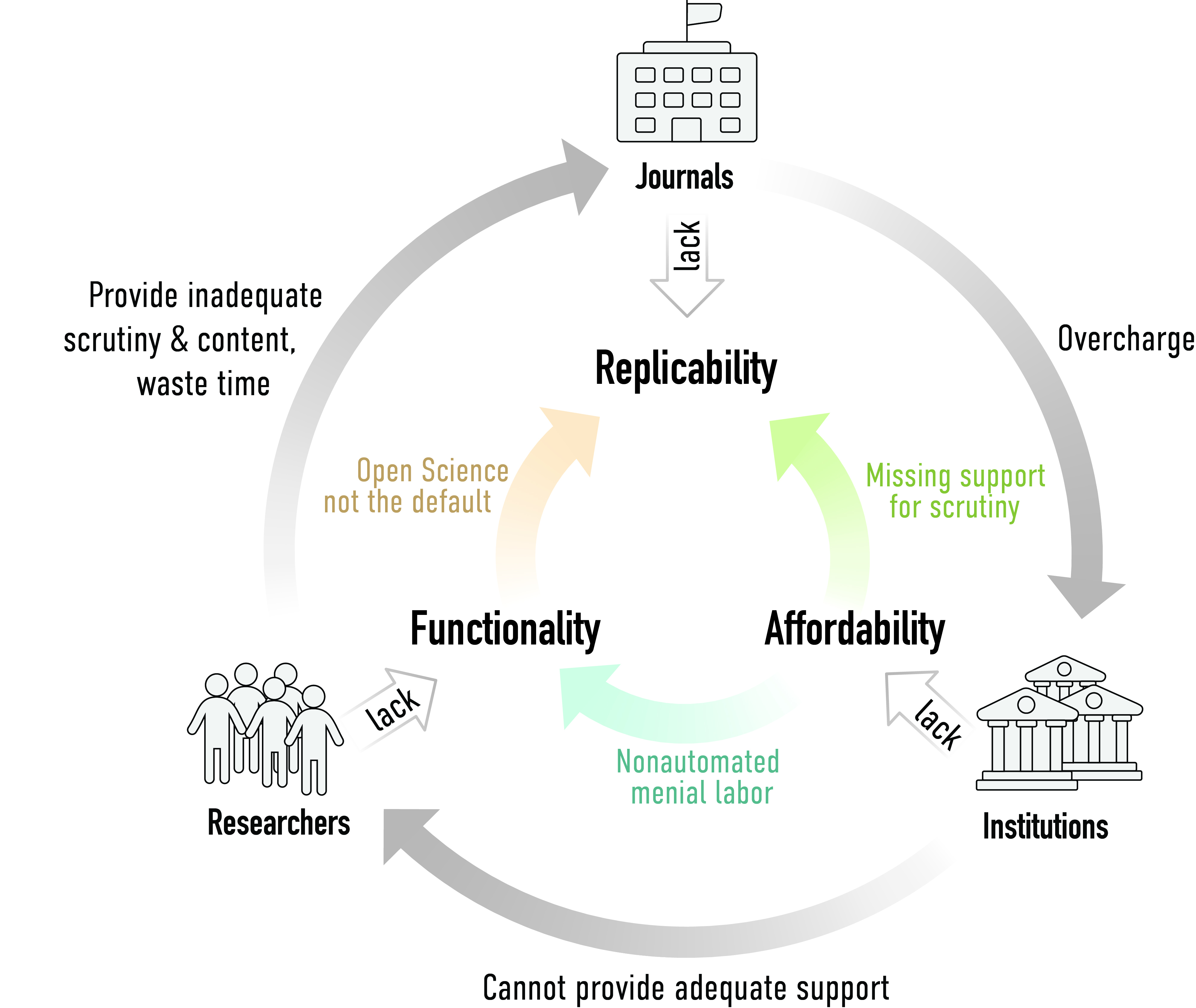The recently discussed scenario of universal gold open access brought about by simply switching the subscriptions funds at libraries to have the libraries pay for author processing charges instead, seemed like a ghoulish nightmare. One of the few scenarios worse than the desolate state we call the status quo today. The latest news, however, seem to indicate that the corporate publishers are planning to shift the situation towards a reality that is even worse than that nightmare. Not only are publishers, as predicted, increasing their profits by plundering the public coffers to an even larger extent (which would be bad enough by itself), they are now also attempting to take over the institutional repositories that have grown over the last decade. If successful, this would undo much of the emancipation we have wrought from the publisher oligopoly. This move can only be intended to assure that our crown jewels stay with the publishers, rather than where they belong, in our institutions. Apparently, some libraries are all too eager to get rid of their primary reason d’être: to archive and make accessible the works of their faculty.
Publisher behavior over the last decade has been nothing short of a huge disappointment at best and an outright insult at worst. I cannot fathom a single reason why we should let corporate publishers continue to parasitize our labor. If even the supposedly good guys can be seen as not acting in our best interest, what are we left with? How can we ever entrust our most valuable assets to organizations that have proven time and again that they will abuse our trust for profit? Why is there still a single scientist left, with the opinion that “the current publishing model works well”, let alone a plurality?
These recent developments re-emphasize that none of our current approaches to solve the access problem (gold, green or hybrid) are sustainable by themselves. It is in our own best interest (and hence the tax-payers’ who fund us) to put publishers out of business for good. If we strive for our institutions and hence us to regain and stay in control of our own works, be that the code we develop, the data we collect or the text summaries we write, then we need a new approach and that is to cut subscriptions on a massive scale in order to free the funds to implement a modern scholarly infrastructure. This infrastructure will not only solve the access problem that most people care so much about, but simultaneously ameliorate the counter-productive incentives currently in place and help improve the replication crisis.
I do not think it is reasonable to try to solve the access problem at the expense of all the other, numerous and potentially more pernicious shortcomings of our current infrastructure, even though there is a lot of momentum on the open access front these days. Why not take this momentum and use it to rationally transform the way we do science, taking all modern technology at our disposal, with the added benefit of also solving the access problem along the way? The result of blindly, frantically doctoring on one single symptom, ignoring the disease that is still festering, is all too likely the death of the patient.
tl;dr: Cut all subscriptions now!














Unless you have a backup plan for half century worth of work already behind paywall (which I already signalled, that it’s becoming more precious, not less), cutting the subscription alone is still like doctoring on a single symptom.
Repositories are a good option to consider (more than a half of paywalled articles can be stored as free-to-read), but the most what we need is getting rid of personal performance indicators (number of papers, IF of journals, Hirsch index, but also article level metrics [these are even more evil]). We are assessed using corporate-originated indicators – how the publishing world can look any different?
Oh, that is easy to answer: https://www.lockss.org/post-cancellation-perpetual-access/
Do you have any stats on LOCKSS? I was looking into this already some time ago and I wasn’t convinced it’s working. As a solution? Maybe. But would love to see the data.
All publishers have contracts with LOCKSS and if you ask them what happens when you go bankrupt, they all point me to LOCKSS. All the new publishers are members, too, including e.g., ScienceOpen and F1000 Research. I take that that really everything is available at LOCKSS
More to the point: we have access to every single article we ever subscribed to, collectively. We just need to find an agreement on how accessible we are allowed to make them. Given our unique negotiation position after all subscriptions are cut, I think we will reach an agreement quite quickly.
You are dead on that we need to also take control of such indicators or metrics. For these, we need to use the scientific method: whatever helps science, we should use it. Whatever is bad for science, we should drop it.